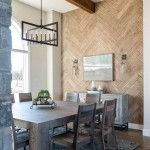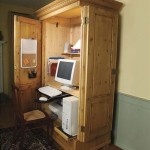What Is Alarm Panel
Understanding the critical aspects of alarm panels is essential for ensuring the security and protection of homes, businesses, and other properties. An alarm panel is the central hub of a security system, responsible for monitoring sensors, triggering alerts, and communicating with monitoring centers. By understanding its key functions and components, you can ensure that your alarm panel is operating effectively and providing the peace of mind you need.
Essential Aspects of Alarm Panels
Several essential aspects define the functionality and effectiveness of an alarm panel:
1. Types of Alarm Panels:
Wired vs. Wireless: Wired alarm panels rely on physical wires to connect sensors and other devices, while wireless systems use radio signals for communication.
Self-Monitored vs. Professionally Monitored: Self-monitored panels allow users to receive alerts and respond independently, while professionally monitored systems connect to a monitoring center for immediate assistance.
2. Sensors and Detectors:
Motion detectors, door/window sensors, glass break detectors, and smoke/heat detectors are essential for detecting intrusions or emergencies and triggering alarms.
Choosing the right sensors and placing them strategically ensures comprehensive coverage and minimizes false alarms.
3. Control Panel:
The control panel acts as the central hub for the entire system. It displays system status, allows users to arm and disarm the alarm, and communicates with sensors and monitoring centers.
Advanced panels offer features like remote access, smartphone control, and integration with other smart home devices.
4. Communication Methods:
Alarm panels can communicate with monitoring centers through various methods, including:
Telephone lines: Traditional method using a dedicated telephone line for communication.
Cellular networks: Wireless communication using cellular networks provides a reliable backup in case of landline outages.
Internet Protocol (IP): Ethernet or Wi-Fi connectivity allows for remote access and enhanced functionality.
5. Monitoring Services:
Professional monitoring services offer 24/7 surveillance and response to alarm activations. They contact authorities, notify keyholders, and provide remote system management.
Choosing a reputable monitoring company ensures prompt and reliable assistance in emergencies.
6. Power Backup:
Battery backup systems or uninterruptible power supplies (UPS) ensure that the alarm system remains operational during power outages, preventing security breaches.
Regular maintenance and battery checks are crucial for reliable power backup.
7. User Interface:
An intuitive and user-friendly interface makes it easy to arm/disarm the system, adjust settings, and access system information. Advanced panels offer touchscreens, mobile apps, and voice control for added convenience.
Understanding these essential aspects of alarm panels empowers you to make informed decisions about your security system and ensure that it meets your specific needs and provides the protection you require.

How A Fire Alarm Control Panel Works Nfpa And Ibc Codes

Fire Alarm Control Panel What It Is And How Works

What Is An Facp Fire Alarm Control Panel Inst Tools

Gen4 Intruder Alarm Panel Security Control Panels Controls Controllers Honeywell Building Solutions

A Comparison Of 5 Top Home Security Control Panels Safewise

Pc1616 Pc1832 Pc1864 Pc4020 Pc5010 Pc5020 Alarm Panel Faqs Adt Security

Version 8 Alarm Panel Faqs Self Help Adt Security Au

Alarm Panel Recall Scare Overblown Security Info Watch

Scantronic I Ong2sm Grade 2 Expandable 10 Zone Burglar Alarm Control Panel

Master Alarm Panel For Medical Gas Updated








